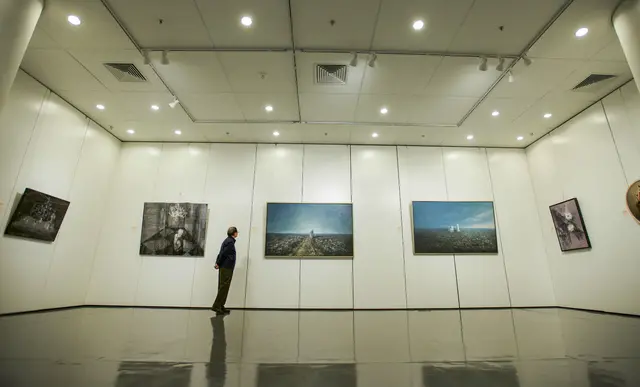Although weakened following defections, capture and the death of several of its commanders, Uganda's notorious Lord's Resistance Army (LRA) rebels operating in the central African jungles is still lethal, a new report has warned.
The report by LRA Crisis Tracker project released on Monday said that initiatives by the US military advisers, Ugandan troops and local communities have helped spark a surge of defections from the LRA which is operating in northeastern Democratic Republic of Congo (DRC) and Central African Republic (CAR).
LRA Crisis Tracker is a joint project developed by Invisible Children and Resolve to collect data surrounding the LRA crisis.
Invisible Children is nongovernmental organization founded to bring awareness to the activities of the LRA while Resolve is an American nongovernmental organization that advocates for an end to atrocities being committed by the LRA.
Military operations led by Ugandan forces authorized by an African Union (AU) mandate have made progress in targeting the LRA' s command structure, highlighted by the capture of Maj. Gen. Caesar Achellam in May 2012 and the killing of Vincent Binany last month.
"In the last nine months, two senior LRA commanders have been captured or killed, and at least 19 Ugandan fighters have left the LRA," said Adam Finck, International Programs Director at Invisible Children.
"Only 150-250 fighters are thought to remain in the LRA, so we are hopeful that this progress will help prevent future attacks on civilians," he added.
The Ugandan military, US military advisers and other civil society organizations in recent months have been broadcasting messages to LRA fighters encouraging them to defect via leaflet drops, FM radio broadcasts, and helicopter-mounted speakers flown over LRA groups.
They have also worked with local leaders in CAR and South Sudan to set up Safe Reporting Sites where LRA members can safely escape.
Eleven Ugandan and 12 non-Ugandan members of the LRA defected to Safe Reporting Sites in CAR in 2012.
The LRA Crisis Tracker project report however cautions that despite increased defections from the LRA, the outfit is still lethal.
It said in 2012, the LRA abducted 517 people and killing 51 others.
The report documented 275 attacks perpetrated by the LRA against civilians in 2012. Sixty nine percent of the attacks were in the first half of the year, a pattern similar to trends in 2010 and 2011.
Such cyclical trends in LRA violence suggest that civilians face an escalated risk of LRA attacks in the first several months of 2013.
"Civilians in CAR and Congo have suffered through a spike in LRA attacks in the first several months of each of the past three years," said Paul Ronan, Director of Policy at The Resolve LRA Crisis Initiative.
"UN peacekeepers in Congo and troops authorized by the AU in CAR must do more to protect civilians in the coming months to avoid a repeat of the past."
"In the meantime, donors should urgently support cost-effective projects that are proven to keep civilians safer, such as expanding mobile phone networks and improving roads," said Ronan.
The report said that the LRA continued to commit unusually large and brazen attacks in 2012 in areas of CAR beyond the reach of AU-authorized Ugandan troops and US military advisers.
In June, LRA rebels made headlines by attacking a uranium mining camp owned by the French company Areva, as well as surrounding villages, in a three-day attack in which 14 people were abducted.
The LRA also committed two massive abductions southeast of the Areva mining camp in September and November 2012, in which a total of 97 people were abducted.
Most of the abductees were either released or escaped within weeks of their abduction.
"LRA groups operating outside the US military and Ugandan area of influence in CAR are wreaking havoc on civilians," said Ronan.
"They are attacking communities with impunity, knowing that there are no protection forces able to stop them."
In order to replenish supplies, the LRA fighters hiding in DRC' s Garamba National Park are allegedly involved in illegal ivory trade
In a December 2012 statement, the UN Security Council urged the UN and AU to investigate "the LRA's logistical networks and possible sources of illicit financing, including alleged involvement in elephant poaching and related illicit smuggling."
"The LRA has demonstrated a remarkable ability to adapt in order to survive for nearly three decades," said Finck.
"The UN and AU should immediately launch investigations into whether LRA groups are illegally trading ivory in order to rebuild their capacity to attacks civilians."
The LRA fled northern Uganda where it had waged a two decade long rebellion following a military offensive by the Ugandan military.
In 2006 it engaged the Ugandan government in a two year South Sudan mediated peace negotiation.
Its leader Joseph Kony who is also wanted by the International Criminal Court to answer charges of war crimes and crimes against humanity failed to turn up to sign the final peace agreement.
Since then the outfit has been wreaking havoc in DRC and CAR killing and abducting people.
A 2012 film, Kony 2012, aimed to drum international support to end the over two decade long crisis in 2012 failed to achieve its success as the outfit and its leader is still at large.
Several regional and international efforts to end the LRA conflict are yet to yield results.
 简体中文
简体中文

